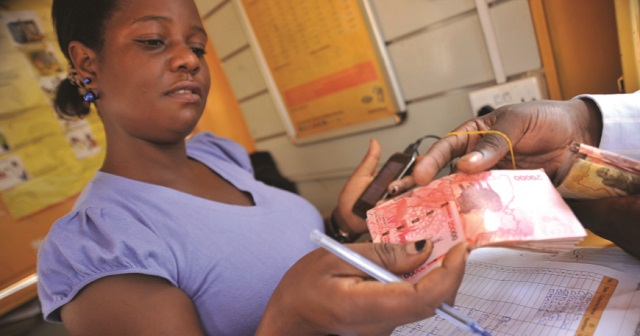
Experts say the interest rates are very high
Kampala, Uganda |Isaac Khisa| Micro-credit is fast becoming a darling to millions of Uganda’s population following the rollout of new credit windows between financial institutions and telecom firms.
But financial experts are worried that the new products may not create as much impact to the economy because of the high interest rates due to the risky nature of the credits. The experts says the micro-credits are also geared mainly towards consumption and emergences rather than investments.
“The financial institutions or banks at the moment are trying to be innovative to capture everybody who would want to get into the credit area for them to make money but is not good for the economy,” said Ramathani Ggoobi, a policy analyst and a lecturer for economics at the Kampala-based Makerere University Business School.
He said the interest rates for micro-credits are very high compared with the rates being charged on conventional banking credit products, a scenario that is likely to make the population lose more money in interest payments.
He said the recent growth of the telecom’s mobile money services shows that more people especially in rural areas are yawning for banking services, which are only located in urban areas.
“Financial institutions simply need to find ways of bringing the unbanked population into the formal financial sector to deepen financial inclusion,” he said.
Presently, merely eight million adult out of the 34.9million people own a bank accounts in the country’s 24 commercial banks, according to the latest World Bank Economic update for Uganda released in February this year.
Analysis carried out by The Independent shows that individuals accessing micro-credits via mobile phones are paying between 40%-88% higher as interest rates to financial institutions compared with the current average interest rate of 20% that are being charged on traditional banking products per annum.
But the population is still interested in accessing the micro-credits amidst the high costs. For instance, Finance Trust Bank, one of the financial institutions offering a micro-credit facility known as Loan Ku-Ssimu through its Trust Bank’s mobile banking platform dubbed Trust Mobile since March this year, has seen a surge in the product uptake, with the customers hooked to the system now standing at 5,420.
The bank, which has so far disbursed Shs371million ranging between Shs100, 000 and Shs1million via mobile phones, charges a 5% interest rate per month, payable within three months. This translates into 60% interest rate per annum.
Commercial Bank of Africa (CBA), which unveiled the MoKash – a micro-savings and loans platform – in partnership with MTN last August has seen customers grow hitting a 2million mark as at the end of last month, according to bank CEO Samuel Odeke.
However, he remained cagey on the loan portfolio registered so far. MoKash allows borrowers loans of up to Shs 1 million repayable within 30 days at an interest rate of 9% per month, which translates into 108% interest rate annum. On the other hand, savers earn 2-5% as interest during the same period under review.
Equally, a South African based financial digital firm, Jumo, has partnered Airtel to give micro-credit to active mobile money users based mobile telephone usage information in Uganda. The firm also has operations in Kenya, Tanzania, Rwanda and Ghana.
Jumo lends individual customers between Shs8, 000 and Shs500, 000 at a processing fee of 8% and Airtel Money agents between Shs100, 000 and Shs1, 000,000 at 6.7% interest rate per month.
The new credit facilities uses telephone usage information including calling records, airtime usage, data purchases and mobile money transactions to assess the credit worthiness of customers before the micro-credit is disbursed upon application.
 The Independent Uganda: You get the Truth we Pay the Price
The Independent Uganda: You get the Truth we Pay the Price




Dear Independent,
Is there a way we can do without loans. May be be we need to boost our own savings first and then latter use it for borrowings. Remember the culture of saving money here in Uganda is still lacking. Its is also clear that the risk and cost of borrowing is still high.
MoKash allows borrowers loans of up to Shs 1 million repayable within 30 days at an interest rate of 9% per month, which translates into 108% interest rate annum. On the other hand, savers earn 2-5% as interest during the same period under review. Lord!! this is why I don’t save with banks, I just let them hold my money for a bit [grins]
I think there’s a misconception about micro-loans. They are intended to serve a specific short term need, hence its not fair to annualize their interest rates (108% p.a) for a loan that’s intended to not exceed 30 days. Remember these are unsecured loans, so the exposure to the lender is very high, its a risk they take in lending to someone they have never met, or who doesn’t give any asset in return.
Again – i don’t think anyone says “that hotel charges $73,000 in accommodation per year”, in the same sense the interest rate can’t be computed annually for a short term loan.
These loans are helpful in emergencies and for SME’s that don’t have good cashflows. The multiplier effect over these 30 days makes the short term loan very handy.